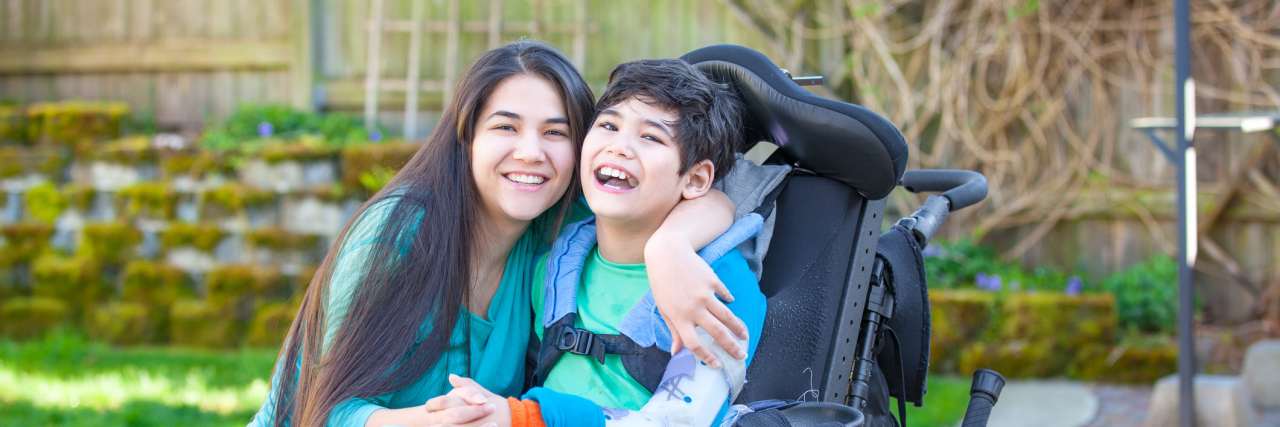We had an experience that has happened before: a child starring at James in his chair and repeatedly asking his mother, “Why is that boy in a wheelchair?”
Parents, this is a natural question for kids to ask. You shouldn’t be embarrassed about them asking. What you should be embarrassed about is your response. Ignoring or shushing your child only teaches them that using a mobility device is something to feel shame over or to be afraid of the differences. I get it is uncomfortable, but so is that silence between you and I. I feel your panic over what to say, but I feel your silence more.
I know those questions seem hard to answer. But trust me when I say, kids don’t need a lot of details. Simple straightforward, “Some people use chairs (insert equipment here) to help them get around better.” Your kid will say, “Oh, OK,” and move on. Any follow up questions they have you can simply say, “You and I can talk about that together, why don’t you tell him your name and introduce yourself.”
What is not OK is for you to ask me or my child, “What is wrong with him?” The answer to that is, nothing. I get what you are trying to ask, but that isn’t the way to do it. It is also not OK to ask personal medical questions or to have your child ask for you (I mean, seriously). Would you be OK with me asking when your last menstrual cycle was? See, that feels weird, doesn’t it? Then don’t ask me about my child’s personal medical history when we first meet.
Now, I get that you might not know what to do when your kids blurts out questions. I’m a mom, too. You don’t have to be embarrassed. What I would suggest is to answer quietly and straightforward, then help your child find what they share in common with my child. Examples:
- “Look he is wearing Pokemon. You like Pokemon, too.”
- Encourage your child to ask his name.
- “I bet you both like to play the iPad, don’t you?”
Instead of focusing on what makes them different, help them see what make them alike. Because when you aren’t around, they won’t feel afraid of a child who might look different. You gave them the skills to see past that.
Lastly, don’t “feel bad” for our family. We know he is in a chair. It is our normal. I’m just a mom like you and we are just a family. If you model treating us like you would any mom with a kid in the store, your child will, too. It is a ripple effect and it really does start with you.
Getty image by jarenwicklund

